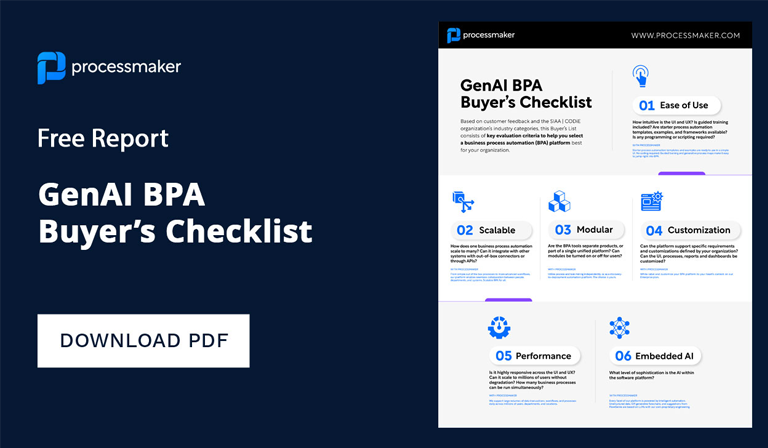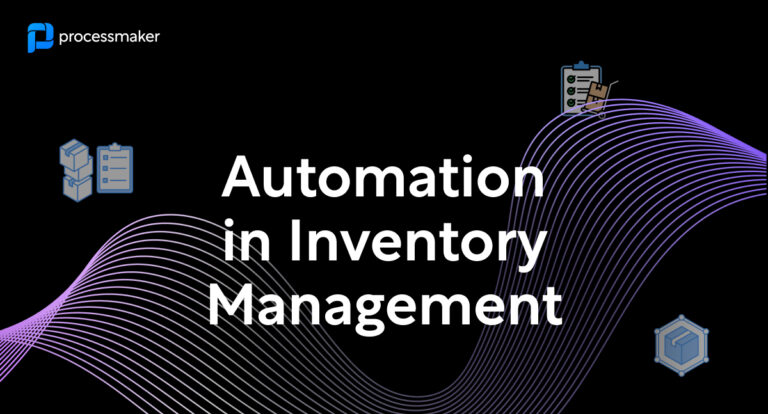Rapid technological evolution and unprecedented business challenges have forced organizations to rethink their business processes and models. One of the most exciting developments has been the rise of low-code platforms. These platforms have made it possible for nearly everyone in the organization to serve as “citizen developers,” creating intuitive and efficient enterprise applications.
What are enterprise applications?
According to research firm Gartner, enterprise applications “integrate computer systems that run all phases of an enterprise’s operations to facilitate cooperation and coordination of work across the enterprise.” An ideal enterprise system “could control all major business processes in real time via a single software architecture on a client/server platform.”
Enterprise application challenges
Traditional enterprise application development and implementation is a major undertaking. The process is slow, expensive, and offers organizations little in the way of operational agility. Some of the largest drawbacks of these solutions include:
- Lack of flexibility. Organizational requirements and needs are constantly changing. Pivoting with traditional enterprise architecture can prove difficult and costly.
- Changing technology. Technology evolves rapidly. Rigid enterprise solutions make it difficult to integrate new technologies.
- Poor usability. Traditional enterprise applications are not as user-friendly as modern applications. User adoption and experience suffer as a result.
- Low ROI. Enterprise application development can be a major undertaking. Organizations must invest a lot of time and money both implementing and maintaining the solutions.
- Slow and costly. Enterprise applications can take months or even years to build and require significant investments of capital.
What are low-code platforms?
A low-code platform is essentially an application that uses a Graphical User Interface for programming to quickly develop code. Manual line-by-line code development is not only time-consuming but require sparse and overtaxed IT professionals to create and implement. Low-code platforms open the development process up to more people – called citizen developers.
Rather than writing code, users create process maps or flowcharts through an intuitive interface. Simply put, low-code involves dragging and dropping blocks of existing code into a workflow to create an application. Note that low-code solutions are not just for use by non-developers. Skilled developers use low-code platforms to work faster by removing repetitive coding processes. This allows developers to focus on higher-value customization features.
The benefits of low-code platforms
Low-code platforms have potentially unlimited uses and benefits for enterprises. The following are a few of the most important benefits.
Speed and flexibility
According to research firm Forrester, with low-code platforms organizations can develop software at 10x the rate of traditional processes. This is due to user-friendly features like drag-and-drop functionality and user interfaces.
Low-code platforms give organizations much needed flexibility to pivot to respond to changing market conditions or customer preferences. For instance, by integrating innovative new third-party applications to provide customers with more functionality and self-service options.
Low risk and high reward
Unlike traditional enterprise solutions that require significant upfront investments of time and money, low-code platforms are ready to go from day one. Organizations take on little risk and have everything to gain.
Superior customer experiences
Organizations can create robust solutions with tools like pre-built templates and chatbots to improve customer interactions across multiple touchpoints. Customers are provided with experiences comparable to those of larger organizations without the hefty IT budget.
Security
Low-code platforms are more secure than traditional applications since the entire development lifecycle is hosted on secure cloud platforms.
Low-code platform features
Modern APIs
Low-code platforms offer unmatched flexibility and agility when it comes to integrating components together to maximize functionality. Integration is achieved through application programming interfaces (APIs). Think of APIs as messengers that deliver your request to a provider and delivers a response back to you.
APIs make it easy to integrate software as well as third-party applications to expand capabilities. They serve a vital role in helping organizations to automate tasks by ensuring smooth transitions between applications.
Cloud-based architecture
Low-code platforms feature cloud-based architecture that provides the most reliable and available environment for your enterprise solutions. Cloud-based solutions scale easily since the infrastructure is located off-site allowing you to add usage and storage needs without having to purchase additional hardware.
In the new remote economy accessibility is more important than ever. Cloud solutions are accessible from anywhere using any device. Moreover, enhanced security features protect your data.
Scalable security
Low-code platforms offer advanced security features like authentication, PCI, and encryption as well as compliance with privacy regulations like GDPR. These features allow “citizen developers” to create great enterprise applications without having to worry about researching all the latest legal and regulatory standards. Moreover, organizations mitigate the likelihood of costly data breaches.
In-memory database computing
In-memory database computing processes large datasets in real-time, giving organizations access to powerful insights. With low-code platforms, users do not have to worry about traditional database administration tasks like data bindings, indexing, or SQL. Organizations save money, time, and make informed data-driven decisions.
Transform your enterprise solutions with ProcessMaker’s industry leading low-code business process management (BPM) software.





